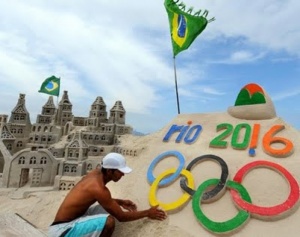Rio 2016 Olympic Games looking toward legacy

Wrapping-up its fifth visit to Rio de Janeiro, the International Olympic Committee’s Coordination Commission, underlined the strong progress being made to deliver a lasting legacy from the 2016 Games.
With less than three years remaining until the Games begin, the Organising Committee and its government partners were able to show the Commission that legacy planning and its delivery were well underway.
Solid progress was also made in a number of other areas such as venue modelling, test event preparation, accommodation, sustainability, spectator experience, and marketing, among others.
The FIFA Confederations Cup and the World Youth Day have both allowed Rio 2016 and its partners to check their planning assumptions and to learn important lessons from these events.
However, the large amount of work still to be completed across the entire project means that timelines still remain very tight and Rio must continue to focus on its top priorities, such as completing the matrix of responsibilities and delivering the venues and associated infrastructures.
Speaking at the end of the meeting, IOC Coordination Commission chair Nawal El Moutawakel commented: “Twenty-nine weeks after our last Commission visit to Rio de Janeiro, we’ve been able to see progress in a number of areas and a good understanding from the organisers and their government partners about the areas that they need to prioritise.”
She continued: “However, when we award the Games to a city, our work is not just to look at the preparations for the Games themselves but also to look at their legacy and to help the city and country to maximise the benefits of being an Olympic host.
“We have been impressed by the commitment of the Rio 2016 team to ensure that legacy is at the heart of everything they do and whether it is developing transport infrastructure, building an education programme, or leaving a sporting heritage to the city, Rio 2016 is making sure that nothing is left to chance.”
The strong support of the local authorities for the Games was once again evident during the Commission’s visit, as all three levels of government – Federal, State, and City – were represented at the very highest levels.
This participation helped to support the discussions around the Games legacy, as it was made clear that the legacy of the Olympics and Paralympics was aligned with the legacy needs of the city, state, and country.
Recent events in Brazil have also underlined the importance of having a strong legacy from events like the Games and the authorities are ensuring that they are used to help deliver what their citizens are requesting.
In areas as varied as transportation, education, medical, procurement, spectrum management, accessibility, and venue construction, the partnership between the IOC, Rio 2016 and the local authorities is paying benefits not just for the period of the Games but beyond and for generations to come.
Some examples of this legacy include four new Bus Rapid Transit lines and a new metro line, as well as the revitalisation of the Rio Port area.

